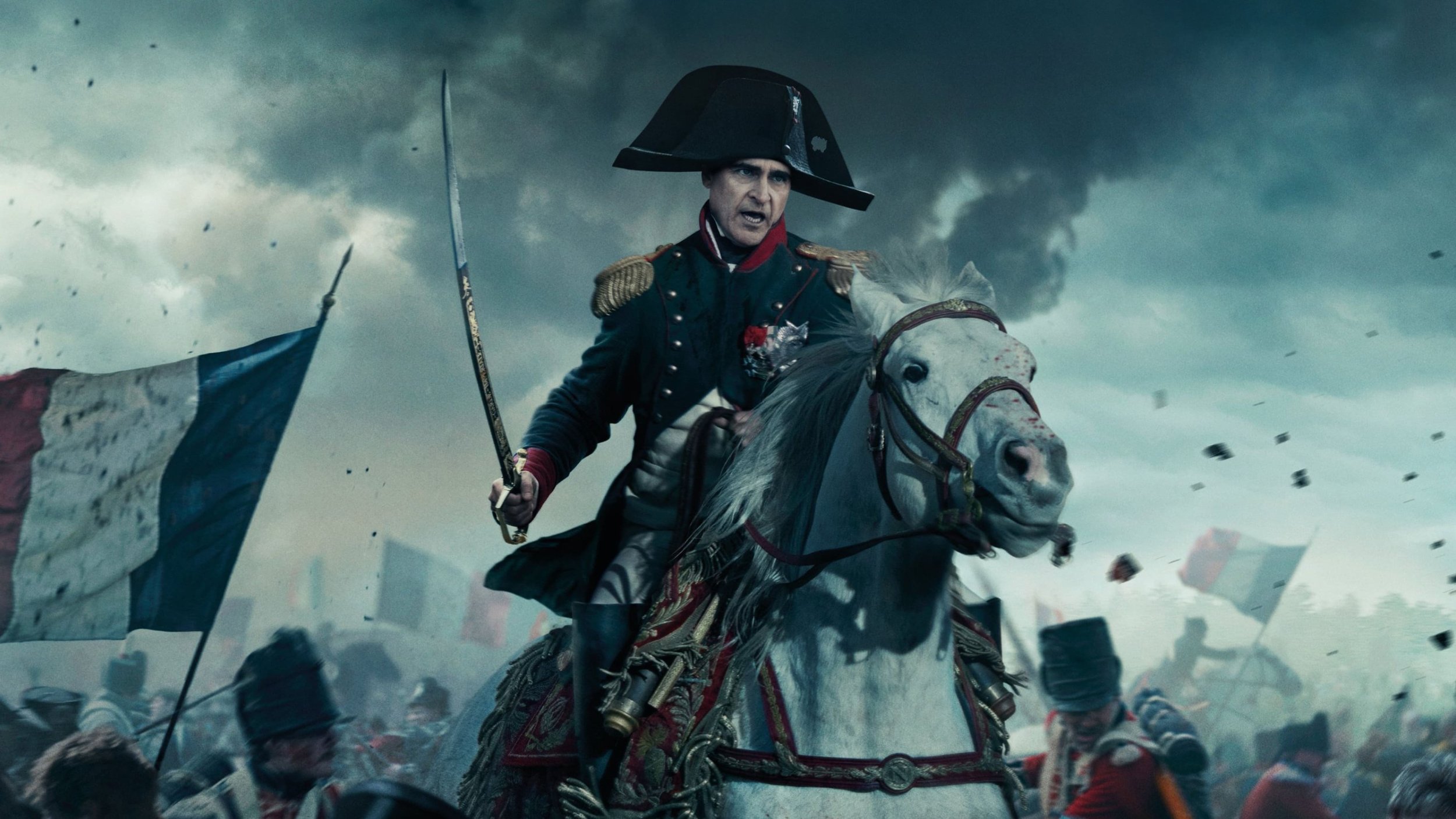Napoleon
Apple TV+If one filmmaker was the perfect choice to bring to life the story of Napoleon Bonaparte to a modern Western audience, it’s Ridley Scott. His eye for directing large-scale battles while keeping the focus on morally complex characters, as seen in films like The Duellists, Gladiator, and, most recently, The Last Duel, translates so well when Scott is tasked to bring the Battle of Austerlitz and Waterloo to life on such a massive canvas. Had Scott collaborated with Netflix to bring Napoleon to the screen, the film wouldn’t have gotten the theatrical release it had, with Apple (and, by extension, Sony) making his latest historical epic a must-see on a theatrical setting, particularly IMAX.
Scott re-teams with cinematographer Dariusz Wolski to bring these battles to life, and they are as staggeringly constructed as the ones featured in The Last Duel, perhaps with more skill this time around, with Scott continuously refining his approach to make his battles feel fresh and exciting to the screen. The Austerlitz sequence is a particular marvel to witness on screen: the cold and calculated Napoleon (Joaquin Phoenix) makes the Russians and Austrians believe they have the higher ground, only for them to fall directly into his trap of being in a frozen river, which gets blown up to kingdom come as soon as they realize they have been fooled.
Bringing Waterloo to life is also an incredible technical achievement to behold. While Abel Gance’s Napoleon remains the most significant artistic achievement at painting Bonaparte’s story to the screen, Scott breathes new life into the cinematic portrayal of le petit corporal’s rise and fall through the battles. As classic as those scenes have been treated to death in so many films, Scott reminds audiences exactly why he’s such a technically averse filmmaker. There isn’t a single battle that isn’t enthralling from a technical perspective, and incredibly cathartic when he wants the audience to see them from Napoleon’s point of view.
The opening battle in Toulon is the perfect example of this: the camera is consistently filming Napoleon, not necessarily the soldiers sacrificing their lives for him. When a cannonball viciously hits his horse, he takes it personally and climbs the ladder to ensure victory. It’s a viscerally alert sequence, but it’s also the only time audiences will ever get to feel the complexity of Napoleon’s story as both prospective Emperor of France and one of the biggest tyrants history has ever seen.
The biggest problem with Scott’s Napoleon isn’t the action scenes and cinematography but the screenplay, written by David Scarpa, who previously collaborated with Scott on All the Money in the World and is currently working with him on Gladiator 2. Perhaps it was intentional, but Scarpa’s script is filled with so many horrendously constructed lines that feel like a bad Saturday Night Live parody of Napoleon that it was hard to take any material seriously.
When Napoleon returns to Egypt with the news of his wife, Josephine (Vanessa Kirby), having an affair, he states, “I've returned to France to find her bankrupt [...] Added to which the discovery that my wife is a slut.” As he eats dinner with Josephine later in the film, he tells her, “Destiny has brought me this lamb chop!” Or, the ultimate banger of Scarpa’s script, telling Talleyrand (Paul Rhys), “You think you’re so great because you have BOATS!” The laughs in the audience were intensely felt, alongside a barrage of hilarious sex scenes that see Phoenix’s Napoleon making chicken noises before intensely thrusting his penis inside Josephine or crawling under the table like a dog in the hopes he will get an heir to the throne before even becoming Emperor.
Perhaps it was intentional, but the entirety of the non-battle scenes are played with a comical touch, making any of the more serious geopolitical aspects of the film completely baseless. Phoenix isn’t even very good at Napoleon, and it could be the worst performance of his entire career, filled with iconic portrayals and very few bad roles. But he’s completely miscast here, phoning in every line written in the picture while having absolutely zero chemistry with Kirby, who’s equally risible. Kirby seems eager to work with world-class talent, as apparent last year in Florian Zeller’s The Son and now Scott’s Napoleon. But the two filmmakers give her virtually nothing of interest to do aside from embarrassing herself in scenes that no sane person should ever put themselves in, even if it means doing it for a potential Oscar nomination. It didn’t happen with The Son, and it’s not happening here.
The only good performance seen in Napoleon happens in the film’s latter half, with Rupert Everett showing up as Arthur Wellesley, Duke of Wellington, which sets the show-stopping Waterloo scene in motion. He seems to be the only actor given lines of emotional substance and not stuff that makes the audience cackle in unintentional hilarity as if they’re watching Tommy Wiseau’s take on Napoleon, which likely would’ve contained more elongated and ridiculous sex scenes. Perhaps Scott is keeping those for the four-hour Apple TV+ cut, which will be released on the streaming service in early 2024.
Thank God Scott knows how to direct action because if it weren’t for those impeccably constructed battle scenes, Napoleon would be one of the year's most significant disasters. It’s now assured that Gladiator 2 will have incredible action, but the script now remains the most significant point of uncertainty. Perhaps Scarpa had a story as equally riveting as All the Money in the World, but as it stands, Napoleon won’t be remembered for being a serious biopic that sheds a light on one of the most complex figures in French history, but as one of the funniest comedies of the year.


